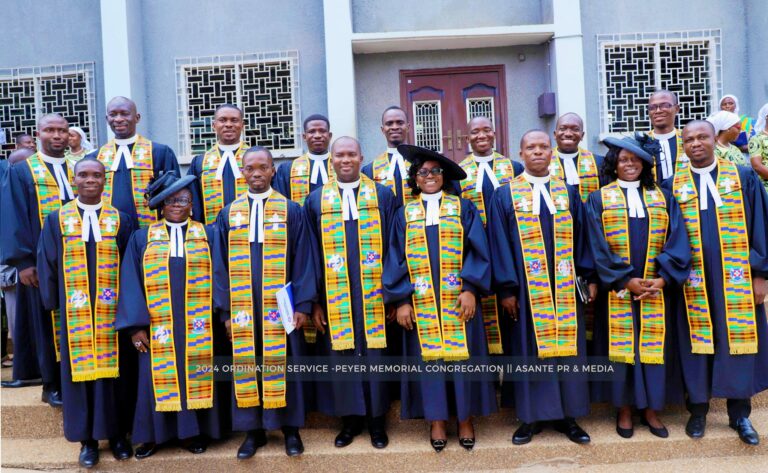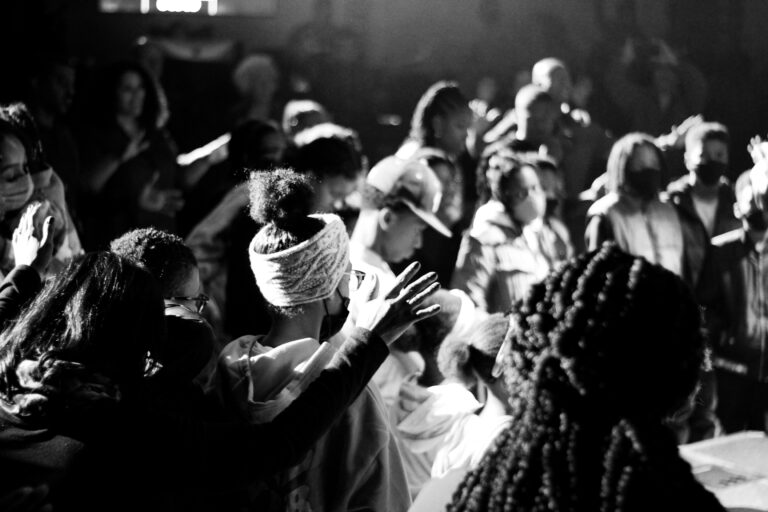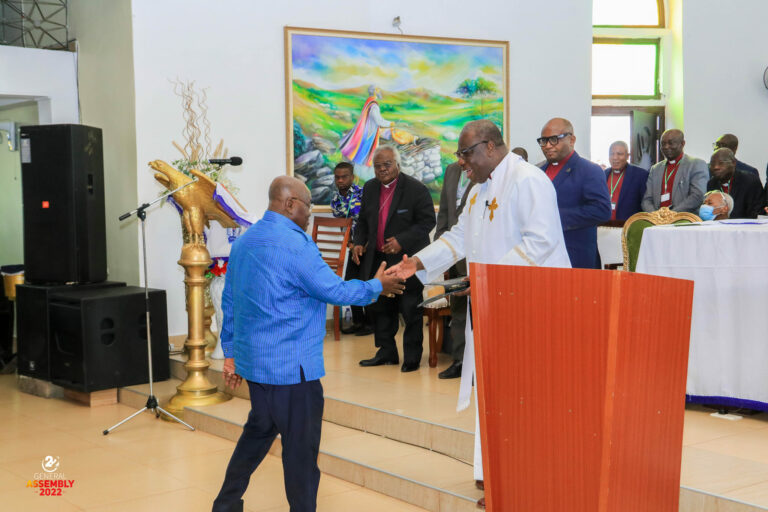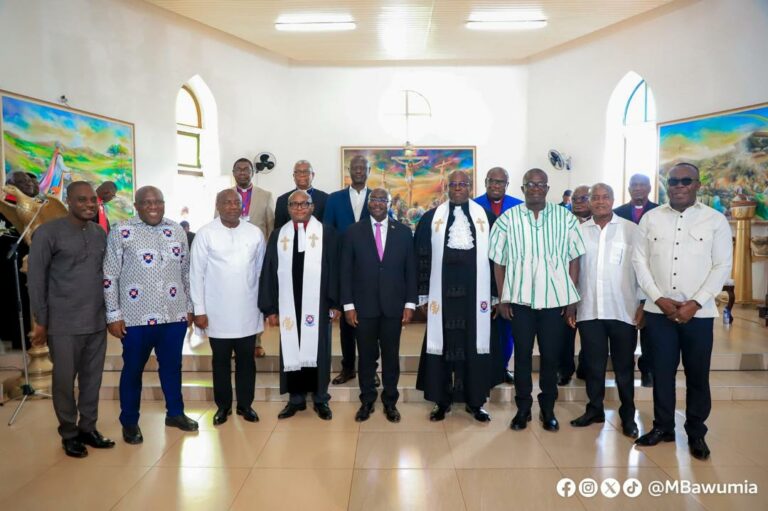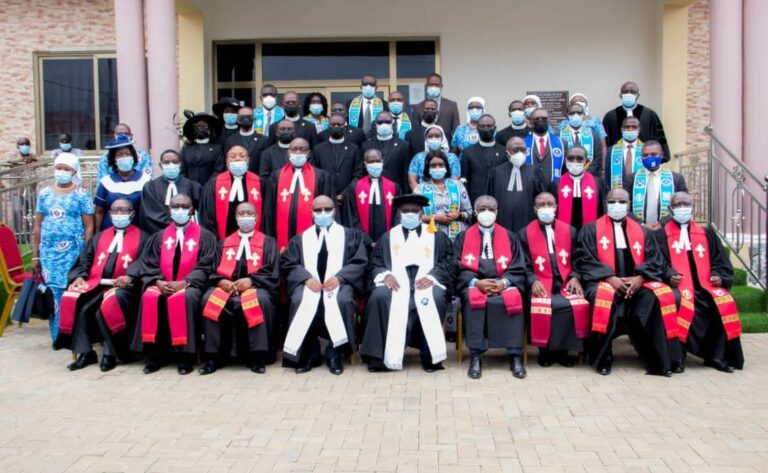Last week, I had a very fruitful conversation with one of my mentors, a minister in the Presbyterian Church of Ghana. As usual, he was checking in on my plans for ministry and academia following my graduation from Yale this year. He frequently reaches out for us to discuss both personal matters and church affairs. He has been a wonderful friend for many years. Our latest discussion focused on the welfare of ministers in the Presbyterian Church of Ghana. After our conversation, I felt compelled to share some of my concerns here. Your thoughts are welcome as well.
As always, let me emphasize that my motivations are entirely pure and not vitriolic. Just like any member of the church, I have a deep affection for the church, and my ultimate goal is to witness its growth and continuous development in every area. Having had the privilege and grace to serve as a catechist, YPG National President, and Youth Representative on the GAC, I am confident that my dedication to this church is beyond question. My experiences in these leadership roles have exposed me to the admirable aspects of the church and those areas where we have room to grow. Though I have many thoughts and issues of concern, for this blog, I will address a single concern: the conditions under which Ministers of the PCG serve, particularly concerning their inductions and send-off services meant to honor their service.
Over time, these induction and send-off services have inadvertently fostered injustice and exacerbated disparities among ministers. Regrettably, only a handful of ministers appear to benefit financially, while many others are left poor.
During my formative years, I nurtured an unwavering aspiration to join the church’s ordained ministry. It was my constant prayer and desire to don the distinctive PCG clerical and ordination attire. Numerous mentors within the church, among them Rev. Albert Baffour Koomson, Mr. Francis Baah, and Rev. Andrew Shadow were aware of my persistent desire to become a part of the PCG ordained ministry. Thus, it came as no surprise to many when, at the age of 22, I was consecrated as the youngest catechist of the church then.
As I continued to mature and drew nearer to my fellow ministers, I witnessed a shift in circumstances. My responsibilities as the YPG national president led me to travel to different presbyteries. During these journeys, I encountered the lived experience of ministers in deprived districts. This encounter did not diminish my aspiration to embrace the PCG clerical role; it added depth to my understanding of the fundamental challenges ministers face.
Within the church, a system, or rather, a tradition, has been established that seems to impoverish ministers transferred to deprived areas. This tradition might be conspicuous, yet it remains largely unspoken of. Just as one minister said, “We cannot talk about these things because we will be victimized.” It’s plausible that the church hasn’t fully considered this matter from the perspective that I have. This is precisely why I am writing this blog.
Please allow me to provide an illustration that underscores my point. Imagine two graduates, Mr. Wilfred Osei. and Mr. Frank Amissah (these are not real ministers of the church), who are commissioned upon their graduation from Trinity or SMT in the same year, become Rev. Wilfred Osei and Rev. Frank Amissah and are subsequently posted to say Osu Presby in the Ga Presbytery and Enyan Denkyira within the central presbytery, respectively.
Upon his arrival at Osu, Rev. Osei found himself situated in a spacious mission house, provided with a ministerial car, enjoying a more favorable church allowance from the local, and benefiting from a more comprehensive array of opportunities for his family, such as access to quality schools, essential amenities, and the convenience of proximity to the head office and senior minister, fostering beneficial relationships.
In contrast, Rev. Amissah arrives at Denkyira with little to boast about. He inherits a church in financial strife, burdened by debt and unpaid allowances owed to past ministers–responsibilities he must strive to resolve. Herein lies the church’s established practice: both congregations are expected to hold induction services to welcome these ministers, where funds are raised to support them.
Due to its endowed position and affluent membership, Osu Presby can muster over 20,000 cedis to support Rev. Osei, as his induction seed money (or whatever they call it). At the same time, Enyan Denkyira, an underprivileged community, can only raise 1,500 cedis for Rev. Frank Amissah. This is true for send-off ceremonies as well. Consequently, as the years pass, Rev. Amissah experiences increasing financial challenges. He grapples with providing his children with quality education, unlike Rev Osei, who faces no such struggle. As Rev Amissah is transferred to remote regions within the presbytery, he lives hand-to-mouth. He lacks the means to even secure land, let alone finance the construction of a modest two-bedroom home for his retirement. Furthermore, since he predominantly serves within deprived presbyteries, he lacks connections and relationships with influential people at the upper echelons of the church.
Therefore, he, Rev Amissah, remains unaware of opportunities for advanced studies and other prospects available to ministers like him. Even if he were aware, the question remains: who would vouch for him or advocate on his behalf to attain such opportunities, especially when Rev Osei and others in Accra and Kumasi have well-connected mentors and Godfathers in top leadership roles in the church because of where they serve? This observation is true since, to my knowledge (though I could be mistaken), individuals from presbyteries like Central, West Akyem, Sekyere, or West Brong, etc., barely benefited from opportunities such as the ThM study abroad program at Columbia Theological Seminary in the United States, and other places where minister’s get study and other opportunities. A district minister once said, “You must be connected to the top to get such opportunities.” I don’t want to believe that is true, though my experience tells me otherwise.
Even more concerning is the stark contrast between Rev. Osei’s and Rev Amissah’s experiences after a few years in ministry. While Rev. Osei thrives due to being placed in a wealthier congregation, enjoying better allowances, receiving generous gifts during ministers’ appreciation events, and benefitting from a substantial send-off package that offers potential security for his retirement years, Rev. Amissah contends with an entirely different scenario. It’s noteworthy that Rev. Osei and Rev Amissah contribute to the same pension scheme administered by the head office based on their relatively low salaries. Despite the apparent opportunity gap between these two ministers, they will retire from the ministry on the same pension scheme based on the salaries they receive from the head office. However, history indicates that pension benefits for ministers often fall woefully short in supporting retirees who face various challenges, including health issues in their retirement. I have seen how some PCG ministers struggle in retirement because they went on retirement with nothing. They lived all their ministries in deprived congregations. In any case, how can one save from 1500 cedis induction and send-off money?
Additionally, Rev. Osei’s advantageous position in Accra allows him to maintain connections with influential church leaders. Consequently, when opportunities arise, his name is the one that springs to mind due to his visible contributions. As time unfolds, an apparent disparity emerges between Rev Osei and Rev Amissah. Rev Osei enjoys a more comfortable life with a flourishing ministry, dressing impeccably and affording his family a higher quality of life. Unfortunately, the same cannot be said for Rev Frank Amissah.
Nonetheless, it’s imperative to clarify that my intention is not to underscore the pursuit of monetary gain or wealth as the primary motivation for entering the ministry of our dear church. Instead, my emphasis is on achieving an equitable economic life for all ministers. We must endeavor to dismantle the existing tradition that disadvantages certain ministers. Our priority should be to ensure that all ministers receive fair compensation. This should be a fundamental aspect of our mission, especially among those who guide and steer the church’s mission forward.
So what? I know you will ask! I’d like to propose a solution to address the existing disparity. We acknowledge the financial constraints we face regarding ministers’ salaries and allowances. However, there is a way to manage this issue more equitably. I propose that the proceeds from induction/welcoming and send-off services should not directly go into the pocket of the minister being welcomed or send-off. We can apply the same principle to ministers, like how funds from induction and send-off services for generational group leaders are dedicated to the entire group’s needs rather than the pockets of the leaders themselves.
In this new approach, the funds collected, such as the 20,000 cedis from Osu Presby and the 1,500 cedis from Enyan Denkyira, would be pooled together. From this combined pool, compensation would be provided for ministers undergoing induction or send-off (or these funds could be used for a ministerial support fund).
Using the earlier examples, Rev Osei and Rev Amissah would be compensated from the total proceeds (20,000 + 1500). In this case, Rev Amissah and Rev Osei would receive part of the total as fairly determined. It’s essential to recognize that Rev Frank Amissah isn’t responsible for the financial difficulties of his congregation. It is not his fault that Enyan Denkyira congregation is a small congregation that lacks financial muscles; after all, he didn’t choose to be posted there. As such, he shouldn’t suffer due to circumstances beyond his control.
Furthermore, I’d like to emphasize that this recommendation shouldn’t solely pertain to ministerial inductions or send-offs. It should also include church officers, including district ministers, chairpersons, presbytery clerks, GAC lay reps, head office directors, and principal officers of the church. I have certain reservations, particularly concerning send-off packages for principal officers like the moderator, which I’ll address in part two of the “dollar behind the devotion” blog later–Why should we raise all these funds and give them to one individual? What is the biblical foundation or principle behind this practice? Is it ethical in any circumstance? I firmly believe that when we consolidate the funds raised through induction and send-offs into a unified pool and distribute them equitably, we will effectively bridge the gap. We will offer valuable support to our fellow ministers in the less endowed communities.
I understand that this proposal might face resistance, particularly from ministers posted to well-endowed churches. Nonetheless, if we genuinely care for one another and uphold the principle of unity, as symbolized by the motto “that all may be one,” this approach is the way forward. It serves as a means for us to share one another’s burdens, exhibit love, and inspire numerous young individuals to consider entering the ordained ministry. This approach could also deter the practice of preferential transfers, where individuals actively seek placement in more advantageous locations. We must not continue to encourage the tradition that discourages people from accepting the call into ministry in the deprived areas. We must prioritize the economic welfare of all ministers to get the best from them. The church must always lead by example!
